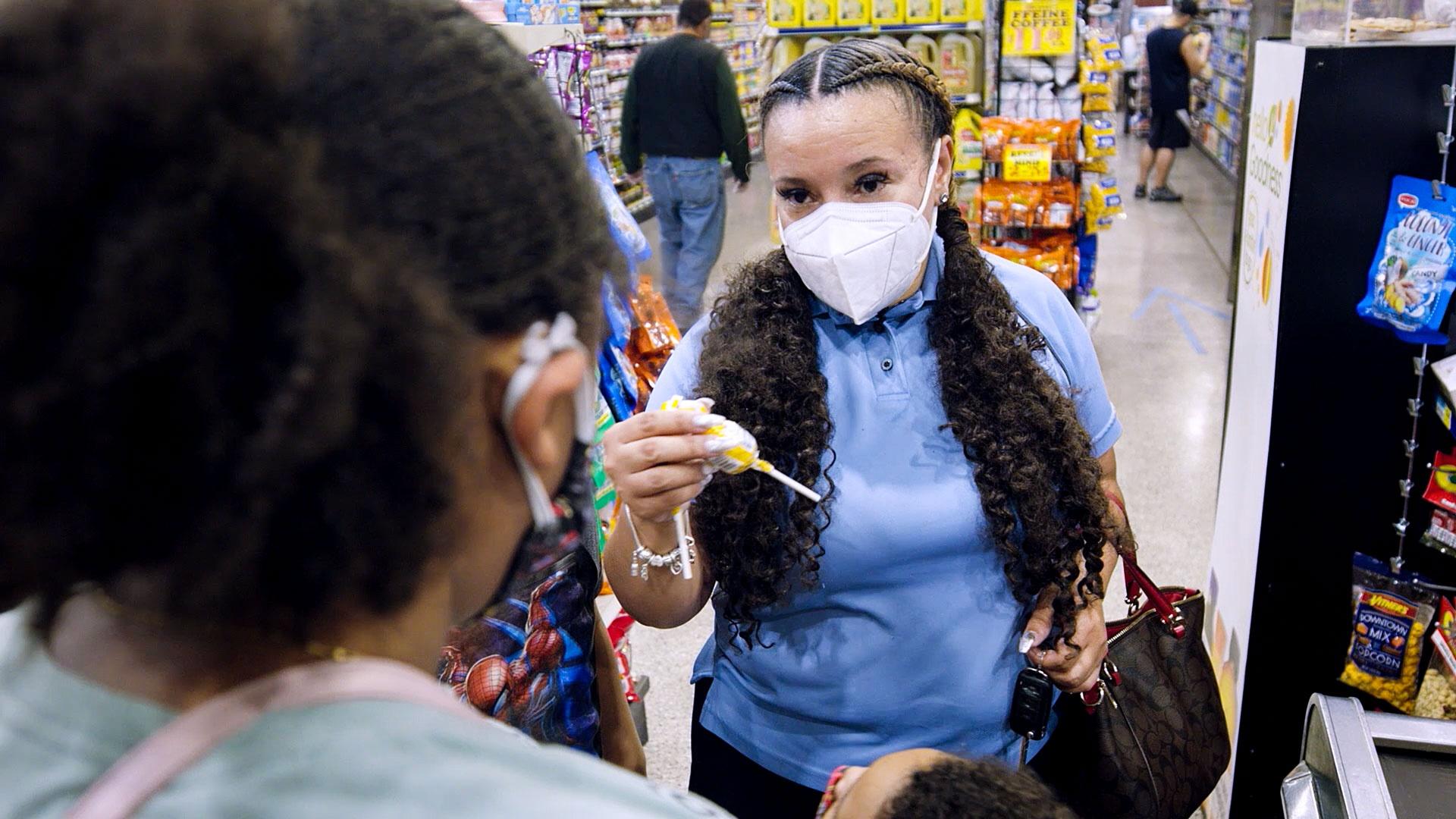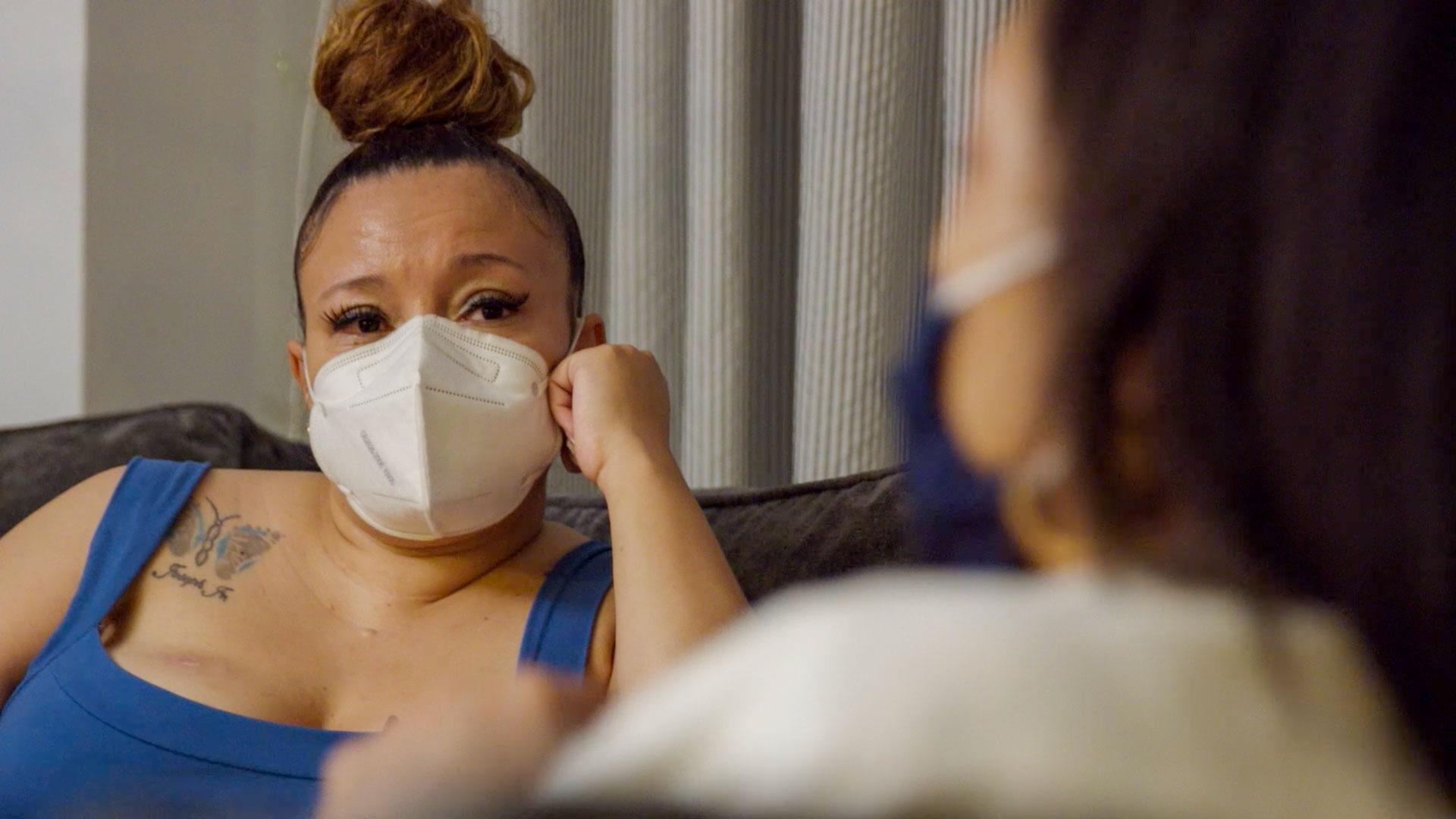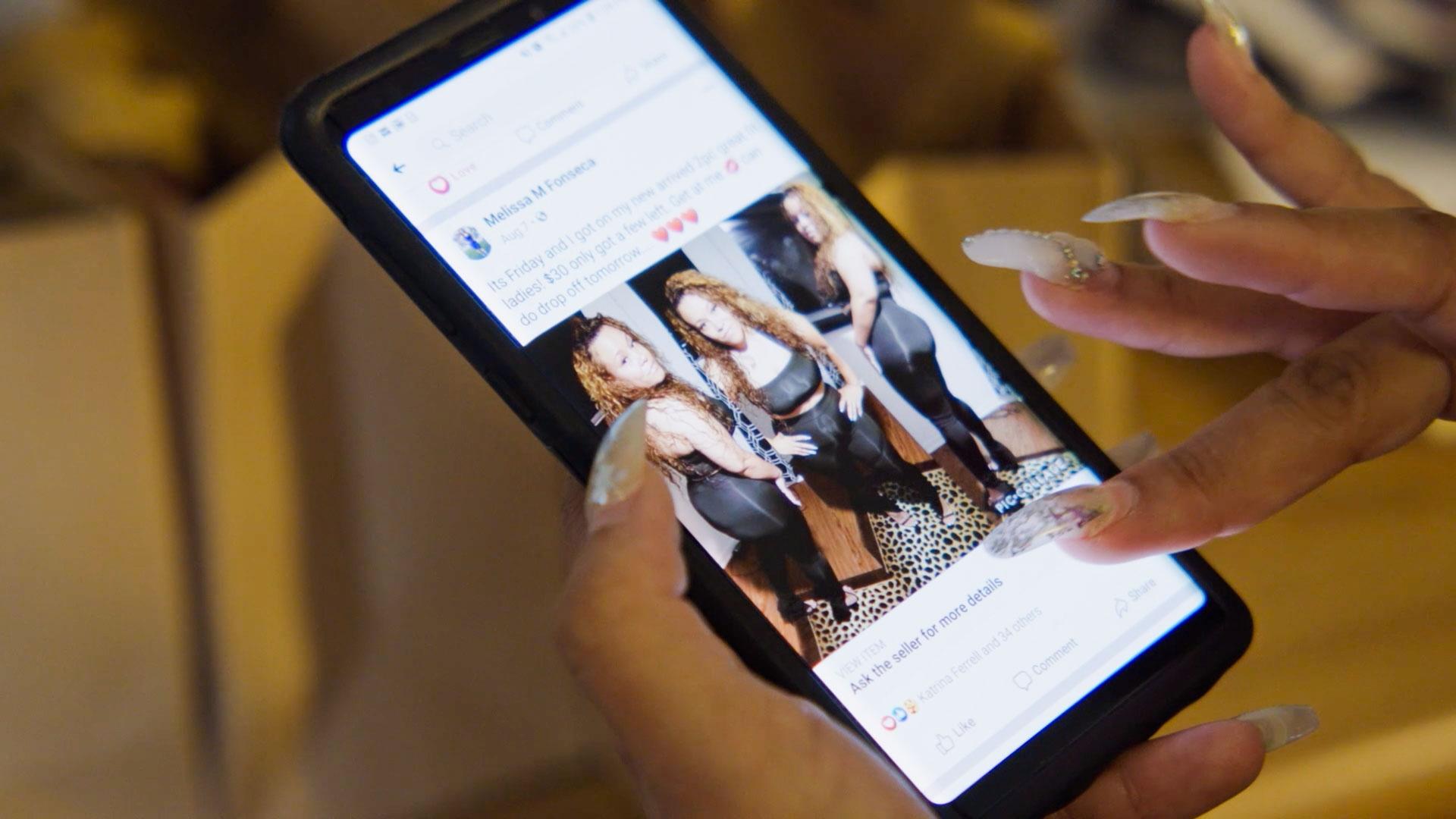Melissa Fonseca | Stories | FIRSTHAND: Living in Poverty
Melissa
Spending More with Less Money
For those who are low-income, the costs of living in poverty often affect them in ways middle-class and wealthy people couldn’t imagine.
Melissa Fonseca, 37, bought a car from a dealership two years ago and used the bulk of her tax refund to get it. Her credit score was too low for her to purchase the car without the extra money down in the absence of a cosigner. A year and a half later, the car broke down and the warranty didn’t cover it.
“I used $5,000 of my tax return money for a car, and the engine went out,” she told WTTW. “I was paying a $400 car note. I was paying more for the car than my apartment,” she said.
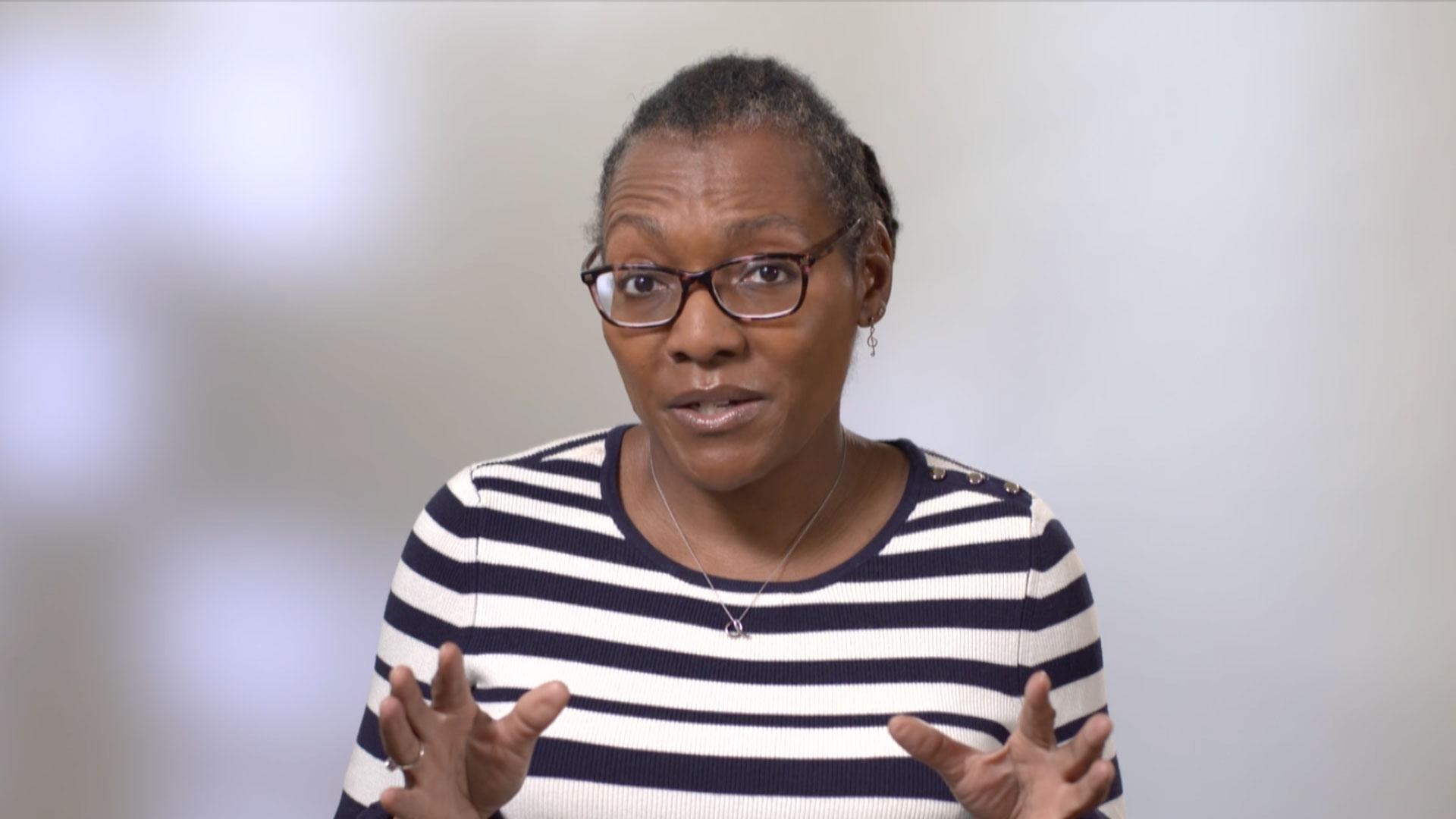
Watch: Unbuckling the Bootstraps Narrative
She was forced to make these higher payments because of her low credit score. Fonseca financed a $10,000 2013 Nissan Rogue and with the money from her tax refund as a down payment, her $400 car note is above the average monthly payment an individual pays for that make and model of car.
For reference, a base-model 2020 Nissan Rogue would run a buyer with “good” credit (a score of 660-699) roughly $335 a month after a $5,000 down payment for a five-year term, according to the payment estimator on Nissan’s website.
Eventually Fonseca stopped making monthly payments on the car. “That ended up messing up my credit. I wasn’t about to pay for a car I couldn’t use, so they repo’ed it.”
After the car was gone, Fonseca had to rely on the help of those around her, such as her father and her children’s babysitter, for semi-reliable transportation to work and school. Her father picked the children up to take to school, then he’d return to take her to work. The kids’ babysitter picked them up after school, and they went to her house. After Fonseca’s shift ended at work, her babysitter would then pick her up and take Fonseca and her children home.
“It’s hard for [dealerships] to finance you, and when they do, you’re paying double or triple,” she said. “When I went to buy that [first] car, it took me the whole day. I was there from 9:00 am to 9:00 pm because they had to go through so many different people to try and finance me because my credit wasn’t that good.”
Fonseca’s problem is a common one. The lower a potential buyer’s credit score is, the more money they will pay in interest on a loan. Additionally, a buyer may have to put down more money up front, as she had to do. On average, 2 million cars are repossessed annually due to delayed car note payments, according to Experian Credit Reporting Company
The higher costs of living in the bottom percentile of earners is a phenomenon Fonseca has faced almost her whole life. Growing up in Humboldt Park, she and her five siblings lived with their mother in Bickerdike, a Chicago Housing Authority (CHA) building. Though she says her mother never explicitly talked about their finances, Fonseca assumes her mother was under intense pressure trying to provide for the family. She said her mother had to make “tough decisions all the time,” akin to her decision to invest her whole tax refund on a vehicle that did not last longer than a year and a half.
As a cashier clerk at Walgreens, Fonseca works full time at minimum wage, placing her in the bottom 25 percent of earners in the country. Due to her tenure at her job, she’s got a 401K, but still does not have a savings account. She lives paycheck to paycheck, a phenomenon that nearly 74 percent of Americans grapple with, according to the American Payroll Association.
“Obviously, I don’t have a problem working; I’ve been at my job for 17 years,” she said. Though she tries to save at least $20 of each paycheck, Fonseca said the money is always needed for an unexpected expense. “I’m trying my best to figure out how to save money in case something occurs.” The Federal Reserve released a report finding nearly 40 percent of Americans don’t have the means to pay for an unexpected expense of $400 – roughly 27 percent would have to sell something or borrow money in order to come up with that amount, and 12 percent still wouldn’t be able to cover it at all.
Low-income Americans such as Fonseca face another hidden cost. Harish Patel, director at Economic Security for Illinois, explained for those who are lower-income, working isn’t solely about physically being present at their place(s) of employment, but there’s an added layer of work in trying to balance benefits – such as Fonseca’s rent-controlled apartment – they may receive.
“A lot of people have to manage how much they make in a paycheck or in a month so they don’t lose the benefit. You make too much money one week, you get cut off or don’t qualify for something,” he said. Patel explained many benefit programs “create a lot of work” in terms of filing paperwork, getting approved, and certifying/following up in safety-net programs.
While eligibility requirements for different programs vary from state to state, most require that those seeking the assistance provide proof their annual income falls at or below the federal poverty level. Individuals seeking assistance in welfare programs must be employed or at least actively seeking work to qualify.
“For folks in poverty, they’re spending a lot of time and energy just doing that, in addition to looking for a job or having a job, but not paying them enough to survive,” he said. “Managing that not only is hard but extremely stressful.”
Fonseca recently started receiving child-support benefits from the father of her children, and because CHA residents’ rent is proportional to their income, her rent was increased.
Sarah Spunt, executive director of LIFT Chicago, a nonprofit poverty alleviation organization, explained how safety-net programs, such as public housing, sometimes help perpetuate cycles of poverty.
“The ultimate goal of the public benefits system is eventually you don’t want people on public benefits. Unfortunately, we’ve designed a system that keeps people poor and disincentivizes income gain,” she said. Gaining access to more money is what lower-income people need, but there is what Spunt and other advocates call a “benefits cliff.” Once a person makes a little over the requirement, even if for only one paycheck or one pay period, they’re at risk of losing access to benefits they previously qualified for.
In Fonseca’s case, the increased rent leaves her with the “same amount of money to play with” in comparison to before she started receiving the child-support payments.
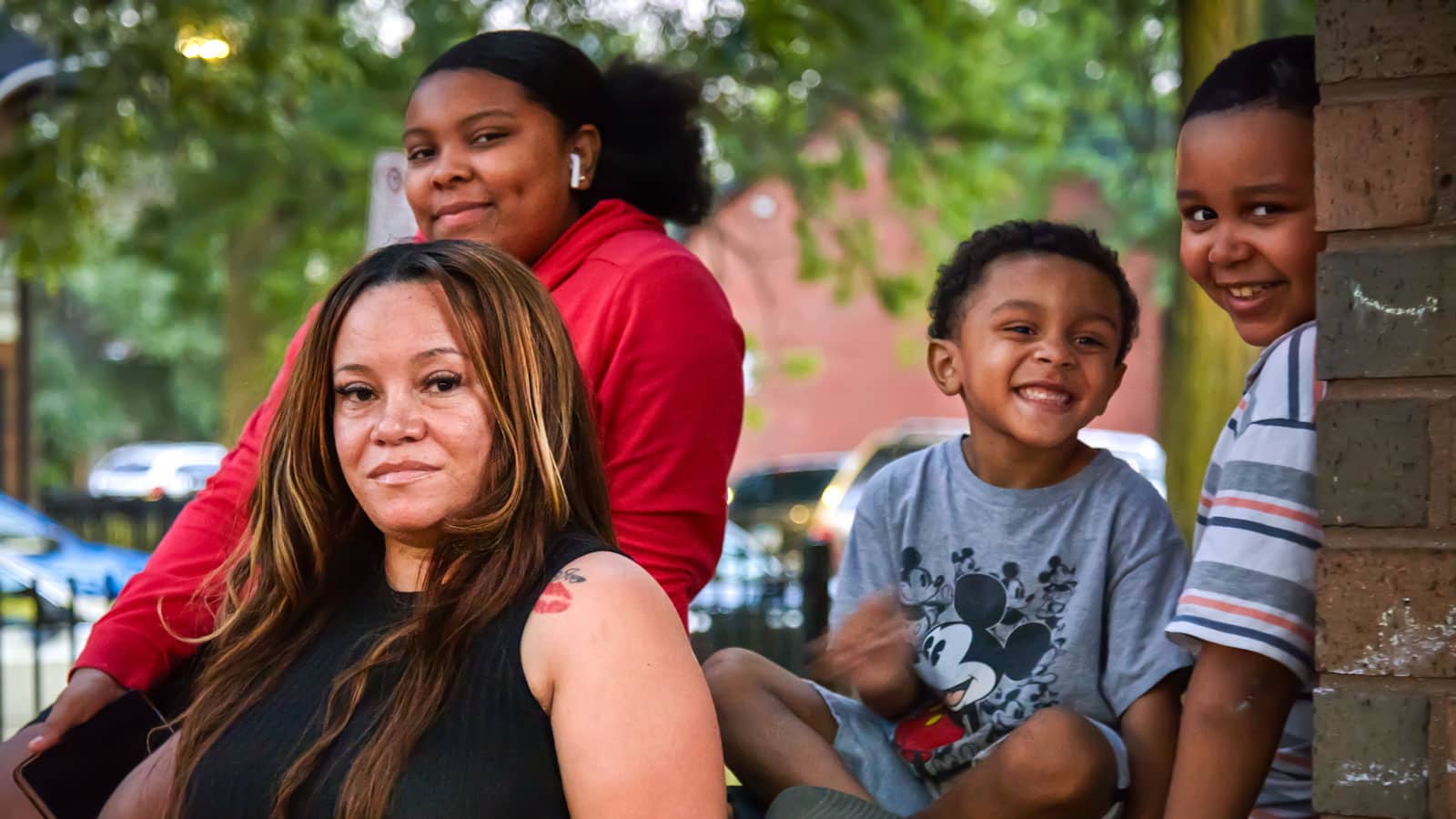
Melissa Fonseca has worked as a clerk for 17 years. Although she works full-time and tries to save what she can, she lives paycheck to paycheck – a phenomenon that nearly 74% of Americans grapple with, according to the American Payroll Association. Photo by Liam Alexander for WTTW
Fonseca dreams of moving her family out of Bickerdike and into her own home. It’s a “realistic goal” she says, but it currently feels out of reach.
“I’m making minimum wage,” she said. “I can’t really finance anything because my interest rates are going to be high because of my credit. I don’t want this [Bickerdike] to be my forever home, but I just don’t think I can afford it.”
Instead of from her paycheck, funds for large purchases come out of her tax refunds.
“Sometimes I don’t even think that I get to see the check,” she said. “By the time I get it, it’s already gone. I live in a survival mindset.”
Lending comes with another set of hidden costs.
The only type of loan Fonseca ever qualified for is a payday loan. Payday loans are high-interest, short-term loans for which the borrower agrees to repay the money on their next payday. Traditionally, the borrower has to write a post-dated check for the amount of money owed when they agree to take the loan out. On the repayment’s due date, if the borrower does not have the money, the lenders can cash the check.
If the borrower doesn’t have enough funds in their account, they’ll now face a bounced check fee from their bank in addition to the costs of the loan. The lenders could also increase the interest rate of the loan or charge additional fees because the repayment was late, trapping borrowers in a cycle of borrowing money just to pay off the same money.
Andrea Juracek, executive director of Housing Choice Partners, a nonprofit housing organization, explained how the credit system routinely locks people into cycles of owing money.
"We're working with single moms of color, and often, they are working two or three jobs and ... they're barely making ends meet and their credit might be low or no credit because of previous situations,” she said. Juracek said it’s “telling” that specifically, the types of families that get stuck in these cycles are headed by single, working moms of color – such as Fonseca.
“It's almost like there's like a checklist you could go down and like, ‘OK, so they haven't had, potentially, access to traditional lines of credit because they only have payday loans and cash checking places in their current communities, and they don't have access to a bank.’ OK, so that's a check mark, so we know that they probably have really bad credit or maybe no credit at all,” Juracek said.
Fonseca feels strongly that her only way to earn more income and get into her dream home is going to school and getting a degree. She went to enroll at the beginning of the year, but found herself overwhelmed by the entire process.
“I tried to apply and they [said], ‘Oh, you need to do financial aid.’ So I did that, then they said, ‘Oh, you need to do placement testing.’ And it just gave me a headache,” she said. The bigger issue came when she tried to figure out how she could balance her life as a working mother and a student.
“I was stuck. How many classes do I take? How am I able to work and go to school? I just can’t not work and not have an income, because I’m the only person in the house with income. I was overwhelmed.” Fonseca says she “doesn’t want this to be it” and is contemplating taking time off work to “figure out how to do school.”
“It was all so complicated, but I need to get it done.”

